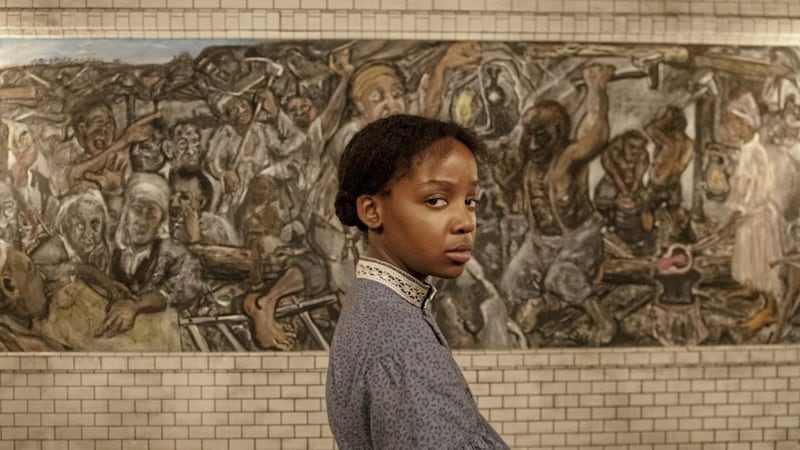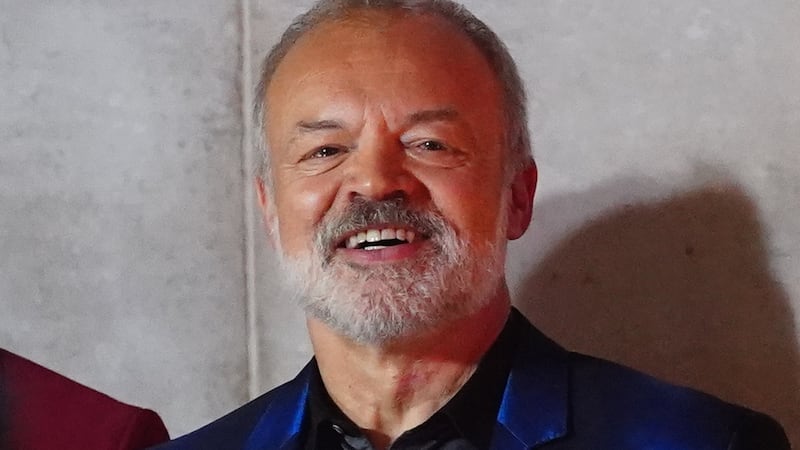THUSO Mbedu is fully prepared for backlash against new series, The Underground Railroad. Following the release of the trailer for the 10-part Amazon Original, the 29-year-old newcomer – this is her first role outside South Africa – read people’s reactions on social media.
“People were saying they’re tired of seeing what they call ‘trauma porn’,” explains the lead star of the unflinching drama. “But, having gone through the show, I can say it’s not that type of story. We’re not indulging in the brutalisation of the black body. It’s a case where – and [director] Barry [Jenkins] has said this time and time again – pretending it didn’t happen does a great disservice to the history of our ancestors.”
Based on Colson Whitehead’s Pulitzer Prize-winning novel from 2016, The Underground Railroad chronicles the journey of young slave Cora Randall (an enthralling Mbedu) in her desperate bid for freedom.
In historical reality, the 'Underground Railroad' was a network of abolitionists, hidden routes, and safe houses that helped African-Americans escape from slavery in the South to freedom in the North in pre-Civil War America.
In the alternative world of the novel and TV series, after escaping from a Georgia plantation, Cora discovers an actual railroad, peopled by engineers and conductors, and a secret network of tracks and tunnels beneath the Southern soil.
Travelling from state to state to realise a life she never thought possible, Cora also has to contend with the legacy of her mother, Mabel, who left her behind.
While this is a story of “hope and resilience”, as Mbedu puts it, the show is, at times, a violent, intense and distressing watch.
Australian actor Joel Edgerton (46) plays Ridgeway, a bounty hunter fixated on returning Cora to the plantation – he has an ulterior motive; her mother is the one slave he never caught.
Asked about delving into the head space of such a character, Edgerton, whose most high-profile films include The Great Gatsby, Warrior and Red Sparrow, says: “I don’t think I could have just gone to set every day to just do bad things and not to understand why. And that’s not to say we’re looking to sympathise with Ridgeway as a person, but to get some insight into how a person’s brain gets shaped from a child into a person that’s willing to do the terrible things he does.
“All I could do is really service that to the extremities we were asked to on set, under the guidance of Barry and this wonderful group of actors and team, and try and look after each other’s wellbeing along the way.”
As part of building a safe environment for the cast and crew, a guidance counsellor was available on set and “was constantly checking in with us”, says Mbedu.
“Just knowing the production had done that meant we realised we were in safe hands, that they weren’t just like, ‘We’re making a show and we’re not going to spend any extra money, it’s all going to go on the screen’,” adds Edgerton.
“They understood that as much as there were pleasurable aspects to Cora’s journey – her seeking love and various other things – there were triggering aspects to some of the things we were asked to do.”
They also had the comforting and supportive presence of Miami-born Jenkins (41), known for If Beale Street Could Talk and Moonlight.
The African American film-maker’s approach to the story, and the inclusion of brutal scenes wasn’t “in order to stir people and rile people up”, says Mbedu.
“It was a case of, ‘We’re showing it because this is what happened’, but it happens within a bigger context of a lived experience. So as much as you see it, there is also a softer side to the story we’re telling.
“We’re not romanticising it in any way,” she continues, noting there’s an understanding that “what I am portraying right now, is actually nothing compared to the actual lived experience that the black body had to endure at the time.”
When Edgerton heard the series was being made, he actually tracked Jenkins down himself to talk about the role.
“I was the one that sort of tapped him on the shoulder and said, ‘Hey, I’ve heard you’re doing this thing and I’d like to work with you’.
“I just knew from watching his movies that while those movies have a lot of darkness and violence underpinning them, a lot of the terrible things are balanced with this incredible search for love and light.”
Mbedu read The Underground Railroad several times in preparation for her role, and when asked about her approach to the project as a South African, she notes she “had to do a lot of unlearning, in order to learn the truth of the context of the story.”
“Barry had sent me reading material, but he had also sent me audio material,” she recalls. “When I had heard and listened to former enslaved people, what shocked me – and changed the trajectory of my preparation – was that they spoke broken English because, for one, the English they were taught was English for instruction, not English for conversation.
“And so, the English I heard from them was an English that, if you were to travel to South Africa today – or different parts of Africa today – you would hear that English being spoken.
“So, the story rang so much closer to home than I had initially realised. And in that moment, it stopped being about African Americans, and more Africans in America.”
:: The Underground Railroad is available to watch now on Amazon Prime Video.





